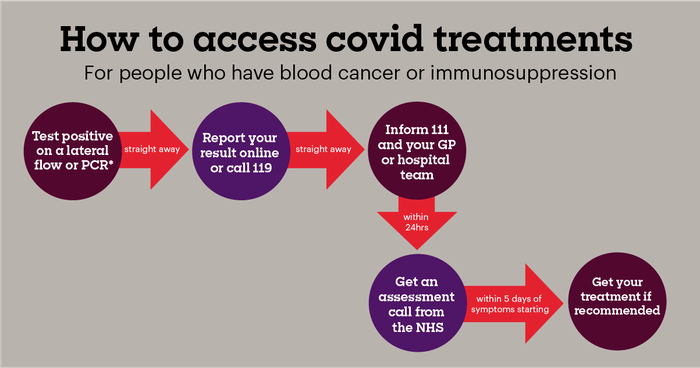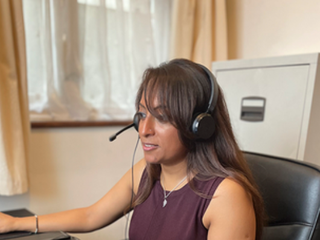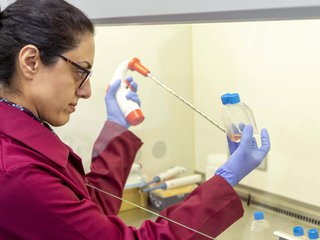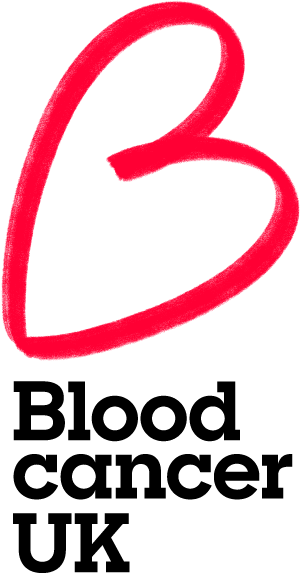Covid vaccine and blood cancer
Antibody and antiviral treatments for people with blood cancer
Find out about the latest treatments for covid that people with blood cancer are eligible for after a positive covid test, including Paxlovid, remdesivir, molnupiravir and sotrovimab.
Page updated 16 December 2022
Research shows that the covid vaccines may not work for everyone with blood cancer. The new antibody and antiviral treatments are therefore key to protect people with blood cancer from severe covid.
People with blood cancer can now access the latest covid treatments after a positive lateral flow test. Free testing is no longer available to the general public, but if you are eligible for covid treatments, you can still order free lateral flow tests from gov.uk
On this page we explain:
Accessing covid treatments - the ideal timeline

*only use tests supplied by the government
Fast access to covid medicines for people with blood cancer
Across the UK, people with blood cancer aged 12 and above who test positive for covid may be eligible for:
- Paxlovid (nirmatrelvir/ritonavir) (antiviral, tablets)
- remdesivir (antiviral, intravenous drip)
- molnupiravir (antiviral, tablets)
- sotrovimab (antibody, intravenous drip), if the above three treatments are unsuitable, and following a medical team's assessment.
These medicines aim to stop covid becoming severe and to prevent hospitalisation or serious illness in those most at risk.
After your positive test, you would need to have a telephone consultation with a healthcare professional, to find out whether you can have one of the treatments.
These treatments are available across the UK, although the process for how to access them varies in the different countries - we explain the process in each country below.
A new treatment called Evusheld, that can prevent people with immunosuppression from catching covid in the first place, has now been approved for use in the UK. It is not being rolled out by the NHS yet, but it is available privately. We explain more about Evusheld further down the page.
How to get assessed for the new covid treatments
Keep a box of rapid lateral flow tests at home. You can order boxes online.
If you get covid symptoms, take a lateral flow test as soon as possible. If it’s positive, you may be able to have a new antibody or antiviral treatment. If it's negative, but you have covid symptoms, you need to do 3 lateral flow tests over 3 days.
Keep a list of your medical conditions and all your medications handy - this will help you during any telephone assessments for new treatments.
If you get symptoms of covid, you should take a lateral flow test as soon as possible. If it’s positive, you’ll need to log your positive test online or by calling 119. This should trigger an automatic phone call from a Covid Medicines Delivery Unity (CMDU) within 24 hours to ask about your symptoms and discuss the new treatments.
Due to the previous problems that many people with blood cancer have had being contacted about new treatments, we would advise that as soon as you get a positive lateral flow test result, you contact 111, your GP and/or your hospital team, as any of these can refer you urgently for a telephone assessment with the CMDU. Make sure you have contact details for your hospital team's out of hours service, in case you test positive at the weekend or any time outside their normal working hours.
Whoever you speak to, tell them you are immunosuppressed and you think you're eligible for the new treatments. If you have any problems, guide them to this link:
If you test positive for covid and aren't able to speak to anyone (the CMDU team, your hospital team, your GP or NHS 111), email your details to england.contactus@nhs.net so they can get the right CMDU to get in touch.
If you get symptoms of covid, you should take a lateral flow test as soon as possible. If it’s positive, you’ll need to log your positive test online or by calling 119.
You should then report your positive covid result to your Health Board. You can find contact numbers for each Health Board here. Whoever you speak to, tell them you are immunosuppressed, with a positive covid test, and that you think you are eligible for the new covid treatments. You could also get advice by calling 111, your hospital team or your GP. If you have any problems, guide them to this link:
Make sure you have contact details for your hospital team's out of hours service, in case you test positive at the weekend or any time outside their normal working hours.
If you get symptoms of covid, you should take a lateral flow test as soon as possible. If it’s positive, you’ll need to log your positive test online or by calling 119. This should trigger an automatic phone call from your local Health Board within 24 hours to ask about your symptoms and discuss the new treatments.
Due to the previous problems that many people with blood cancer have had being contacted about new treatments, we would advise that as soon as you get a positive lateral flow test result, you contact 111 or your Health Board to ask about getting the telephone assessment for new treatments. You can find contact numbers for each Health Board here. You could also get advice by calling your hospital team or your GP.
Make sure you have contact details for your hospital team's out of hours service, in case you test positive at the weekend or any time outside their normal working hours.
Whoever you speak to, tell them you are immunosuppressed, and that you think you are eligible for the new covid treatments. If you have any problems, guide them to this link:
If you get symptoms of covid, you should take a lateral flow test as soon as possible. If it’s positive, you’ll need to log your positive test online or by calling 119. This should trigger an automatic phone call from the NHS within 24 hours to ask about your symptoms and discuss the new treatments.
Due to the previous problems that many people with blood cancer have had being contacted about new treatments, we would advise that as soon as you get a positive lateral flow test result, you contact 111 or your Trust to ask about getting the telephone assessment for new treatments. You could also get advice by calling your hospital team or your GP.
Make sure you have contact details for your hospital team's out of hours service, in case you test positive at the weekend or any time outside their normal working hours.
Whoever you speak to, tell them you are immunosuppressed, with a positive covid test, and that you think you are eligible for the new covid treatments. If you have any problems, guide them to this link:
If you are told you are not eligible for new treatments
Not everyone with blood cancer will be eligible for the new treatments, even after a telephone consultation. In this case, you could think about joining the PANORAMIC trial. This trial gives you a 1 in 2 chance of getting Paxlovid (half the people on the trial get Paxlovid and half don’t).
You can sign up to the PANORAMIC trial yourself if you have covid symptoms, a positive covid test, and you are aged 50 or over, or 18 to 49 with an underlying condition.
Watch the full video about new covid treatments, how to access them and what you might be asked on a telephone assessment.
Who is eligible to be assessed for the new treatments?
From 13 June 2022, the written guidance explains that the following people with blood cancer might be eligible for a telephone assessment for new covid treatments following a positive covid test. People who:
- have any type of blood cancer (including chronic blood cancers, MPN and MDS) and have had cancer treatment within the last 12 months (aspirin is not a cancer treatment) - including people with CML who are in chronic phase molecular response, or on first or second line TKI treatment) (previously, these CML patients were excluded)
- had a stem cell transplant in the last 12 months - either allogeneic (donor) or autologous (using your own stem cells))
- have active graft vs host disease (GvHD) regardless of how long ago the transplant was
- had CAR-T therapy in the last 24 months
- anyone else with CMML, myelofibrosis (CMML and myelofibrosis were previously excluded), MDS, myeloma (not including MGUS), or a chronic B-cell lymphoproliferative disorder (eg CLL, hairy cell leukaemia, follicular lymphoma, SLL, marginal zone lymphomas, MALT lymphoma, Waldenström macroglobulinaemia), regardless of treatment.
People with other conditions like other cancers, kidney disease, liver disease and other underlying conditions are also eligible. We have explained the breakdown for blood cancer above, but you can see the original guidance here.
If you are told you are not eligible for an assessment, but you think you should be, contact your hospital team straight away. Your specialist doctor (haematologist) may be able to refer you.
Always let your hospital team and GP know if you have blood cancer and test positive for covid.
We've produced this document with the British Society for Haematology to aid understanding of the eligibility criteria at covid medicine delivery units around the UK:
I have a condition that's not mentioned in the list above - am I eligible?
There are some people that might not be eligible for the new covid treatments, according to the list above. This includes:
- people who have CML, ET, PV, LGLL (or any other blood cancer that does not affect B cells) AND who have not had any anti-cancer treatment in the last 12 months (aspirin doesn't count as a cancer treatment), no CAR-T therapy in the last 24 months, and no active graft vs host disease (GvHD).
The full guidance on eligibility is available here.
For people with these conditions, we think you might not be eligible for the new covid treatments. However, as this eligibility criteria has changed several times, it might still be worth contacting 111, your GP or your hospital team, to ask whether you should have a telephone assessment for the new treatments.
Whether you have been sent a letter about this or not, if you get covid symptoms, take a covid test as soon as possible. If you get a positive result, follow the instructions for your country above, to find out whether you should access the new covid treatments.
The eligibility criteria has been agreed by the four UK Chief Medical Officers, based on advice from experts about different levels of risk in different conditions. But this list is under constant review with experts (we are also influencing by sharing our vaccine research) so it's possible the list could be expanded again, as it already has been changed more than once. If you are worried about your risk and access to the new treatments, talk to your doctor or medical team, or contact us.
We know that letters and emails have gone out to people about this. But because of the way that letters have been sent out, often using automatic processes and imperfect NHS data, some people who are eligible might not have got a letter.
If your blood cancer diagnosis was recent, you might not have a letter yet. The groups of people with blood cancer who are eligible has also been expanded recently, so more people can access the treatments, but not everyone has been sent a letter since the eligibility was widened.
Even if you haven’t had a letter, the latest treatments can still be given from 10 February 2022 in all four nations of the UK if you are eligible.
If you are included in any of the groups above and you get covid symptoms, get a covid test as soon as possible. Read the instructions near the top of this page, where we explain the process for each country.
Many people are keen to get started on covid treatment once it’s been recommended, because for them, it’s the best way to stop their symptoms getting worse and avoid hospitalisation.
Others feel a bit nervous about taking the new treatments, especially if their symptoms are mild. It's understandable to have questions and be looking for some reassurance.
Here are some suggestions to help you feel comfortable with the decision you may need to make:
- Report a positive test result online straight away and have the assessment if you’re eligible – you won’t be committing yourself to having the treatment, but you will find out which drug is recommended for you.
- Find out more about the recommended treatment. You can start by reading the information on this page and following the links to the patient information leaflets.
- Write down your questions or concerns and either go through them with someone from the telephone assessment team, or contact your hospital team.
Most treatments need to start within five days of symptoms starting, so you may feel under a bit of pressure to make the decision. But do ask questions – NHS staff should be ready to answer them.
Antibody and antiviral treatments are preventive – they are designed to stop the covid getting worse. So even if you feel well in the first couple days, it’s possible that things could change. But the decision to have treatment is yours.
If you’d like to talk through anything before you speak to a medical professional, contact our Support Service free on 0808 2080 888 or support@bloodcancer.org.uk. We can’t answer medical questions, but we can help you prepare for conversations about your health.
If you are thinking of travelling away from home, do discuss this with your healthcare team or doctor first. Ask them:
- What do I need to think about before travelling?
- What should I do if I test positive for covid while I'm away?
Not everyone with blood cancer needs antivirals or antibody treatments for covid, but some do. For many people, covid can seem mild at first but then get worse.
Before you go away, make sure you:
- Have all of your covid vaccinations, including the spring booster
- Ask your healthcare team what you should do if you get covid while you are away
- Have contact numbers for your healthcare team, including numbers for evenings and weekends
- Take a recent clinic letter and any medication paperwork with you
- Take lateral flow tests away with you, and test if you get symptoms
- Get travel insurance if you can - Macmillan have some information on travel insurance.
- Ask your healthcare team for a letter to take with you, detailing your current diagnosis, treatment and condition overview, medication list, fitness to travel, and eligibility for new covid treatments.
If you get covid while you are away, tell your healthcare team straight away and get their advice.
You can also check the policy for covid treatments in the country you are visiting by contacting their health authority. If you have a UK European Health Insurance Card (UK EHIC) that hasn’t expired yet, or a UK Global Health Insurance Card (UK GHIC), you can access the same medical treatments as residents of the country you are in. So if covid treatments like Paxlovid are available in the country you are in, and you would be eligible for it according to that country’s guidance, you might be able to access it there.
What are the different covid treatments and how are they are given?
All of these treatments have been found to be safe and effective at reducing the risk of hospitalisation and death in people with blood cancer with covid. Which treatment you have (if any) will be based on a personal assessment with a qualified healthcare professional about the different benefits and risks.
Paxlovid
- antiviral treatment (made up of nirmatrelvir and ritonavir).
- taken as tablets at home
- can be used in people aged 18+
- 88-89% relative risk reduction of hospitalisation or death
- should be given within 5 days of covid symptoms starting, but this can be extended to 7 days if needed
- more about Paxlovid
There are lots of health conditions and other medicines that can interact with Paxlovid. With some, you shouldn’t take Paxlovid at all, with others, your doctor should consider this with you before making a decision. The drugs include some cancer drugs, immunosuppressants, painkillers, drugs for infections, blood clot prevention drugs, hormonal contraceptives, and other medicines. So any decision about starting Paxlovid would need to follow a discussion about your type of blood cancer, any other health issues and what other medication you are on.
Remdesivir
- antiviral treatment
- given into a vein (intravenously), so you’d need to attend a medical clinic to have treatment
- can be used in people aged 18+, and sometimes 12+ when give ‘off-label’
- 87% relative risk reduction of hospitalisation or death
- should be given within 7 days of covid symptoms starting
Molnupiravir (Lagevrio)
- antiviral treatment
- taken as tablets at home
- can be used in people aged 18+
- 30-48% relative risk reduction of hospitalisation or death
- should be given within 5 days of covid symptoms starting
- more about molnupiravir
Sotrovimab (Xevudy)
- antibody treatment
- given into a vein (intravenously), so you’d need to attend a medical clinic to have treatment
- can be used in people aged 12+
- 79% relative risk reduction of hospitalisation or death
- lab work suggests it’s effective against the Omicron variant
- should be given within 5 days of covid symptoms starting
- more about sotrovimab

Have questions about the new treatments?
Information is changing fast and there's a lot to keep up with. We are here to help you through it.
Evusheld - for preventing covid in people with blood cancer
Evusheld is an antibody treatment that can be used to prevent people with blood cancer getting covid in the first place. It could be an important option for people with blood cancer who haven't responded to the covid vaccines.
Evusheld has been made available privately in the UK. We have more information about accessing Evusheld privately, and how effective it is.
Evusheld (tixagevimab/cilgavimab)
Evusheld is a long-acting antibody treatment that has been found to prevent covid in people who take it. It's made by AstraZeneca and is made of two monoclonal antibodies called tixagevimab and cilgavimab. It's given by injection.
Read our latest blogs about Evusheld:
Evusheld available in the UK to buy privately (published October 2022)
What's the latest on Evusheld? (updated October 2022)
Is Evusheld effective? (updated November 2022)
In these blogs we explain that Evusheld looks less effective in Omicron BQ.1 and BQ.1.1 (dominant strains in the UK in November 2022). But it’s not clear whether this means it doesn’t provide any protection, or won’t be more effective against future strains that we haven’t encountered yet.
Antibody treatments for covid
An antibody treatment can give your body the covid antibodies it needs to fight the illness. The antibodies are injected straight into the bloodstream. They will stick to the surface of coronavirus and stop it getting inside our cells and making us ill. They also act as a distress signal, telling other cells to come and help destroy the virus.
This is particularly important for people with blood cancer, whose immune systems may not be able to develop its own covid antibodies after vaccination.
Antivirals work slightly differently from antibodies. They interfere with the way the coronavirus replicates and reproduces in our body.
On their own, viruses can’t make more versions of themselves. What makes them effective, is their ability to enter our own cells and hijack a toolbox in our cells that allows them to increase their numbers. Antivirals stop this from happening, and the less virus there is in our body, the lower the risk of more severe illness.
The UK government has said that finding antiviral medicines that can be taken at home (as tablets) will be one of the main ways to protect people from covid after vaccination.
We expect both antivirals and antibodies to be good options for people with blood cancer, as results from clinical trials have been promising.
What other research is happening for people with blood cancer?
Blood Cancer UK are funding and coordinating research into how covid is affecting people with blood cancer, and how well the covid vaccines are working. Together with other charities, we are investing £800k in vaccine efficacy research.
We report on our own research findings, and findings from other key studies. Find out what we know so far about covid vaccine efficacy for people with different blood cancers.

Fund blood cancer research
The day we beat blood cancer is now in sight, but we need your help to get there.
Support for you
Coping with the pandemic is understandably difficult if you have blood cancer. We have more information about coping with risk and uncertainty.
Talking to other people with blood cancer is helpful. You can do this on our Online Community Forum.
We are also here to answer your questions or just to talk about how you're coping. Contact our free and confidential helpline on 0808 2080 888 or send us a message.
The following companies have provided funding for our coronavirus support, but have had no further input: AbbVie, AstraZeneca, Celgene, Gilead, Incyte, Kyowa Kirin, Novartis, Pfizer, Sanofi, Takeda.

